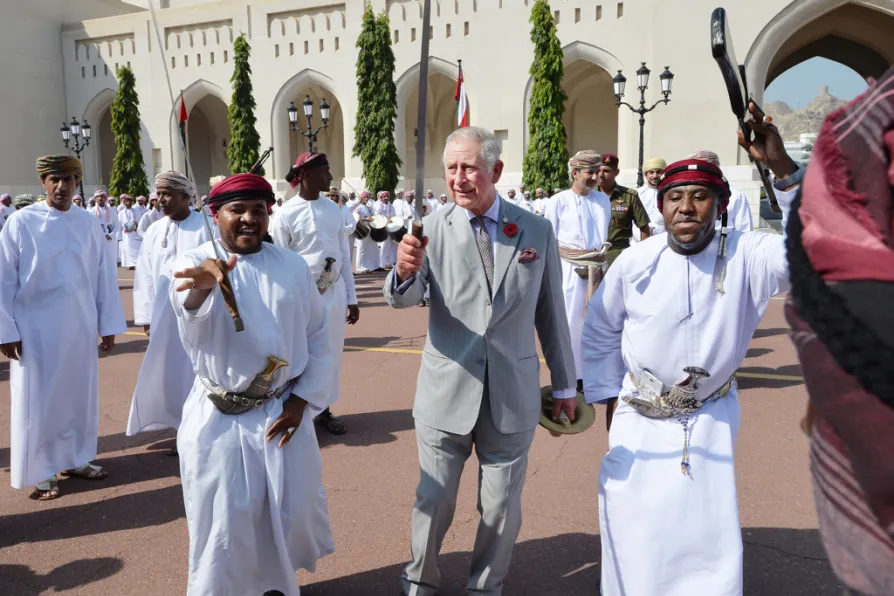The US-Israeli strikes against Iran are part of a decades-long war against the Islamic Republic which has refused to bow to US demands that it surrender its sovereignty, argues VIJAY PRASHAD

 Charles Windsor (centre) takes part in a ceremonial sword dance with local performers during a visit to Muscat, the capital of Oman, at the start of his official 2016 tour of the Middle East.
Charles Windsor (centre) takes part in a ceremonial sword dance with local performers during a visit to Muscat, the capital of Oman, at the start of his official 2016 tour of the Middle East.
IN HIS new book AngloArabia: Why Gulf Wealth Matters to Britain, Dr David Wearing observes: “British power has been an important factor (among others) in the promotion and preservation of monarchical rule” in the Arabian Gulf.
With the Morning Star’s Phil Miller recently writing a couple of exposes of the UK’s military involvement in Oman it is worth taking time to explore the British government’s wider relationship with the so-called “sleepy sultanate” in more detail.
Since signing an “assistance” treaty with Oman in 1798 — its first in the region — Britain has played the role of imperial overseer to the country. British historian Mark Curtis notes the “extremely repressive” regime of Sultan Said bin Taimur from 1932-70 “was in effect run by the British.”
Britons served as commanders of the armed forces, ministers for financial affairs, foreign affairs and petroleum affairs, as well as the director of intelligence, Curtis notes in his 2003 book Web of Deceit: Britain’s Real Role in the World.
However, with the country in the midst of civil war, by 1970 the Sultan had come to be seen as an unreliable and weak leader by the British, who helped to overthrow him in a palace coup.
For his troubles he was settled in the Dorchester Hotel back in London, where he died two years later. His own son, the modernising Qaboos, was installed in his place, and 49 years later he still rules Oman, making him the longest-serving ruler in the Arab world.
As this longevity suggests, Oman is an absolute monarchy, in which “nearly all power remains with the monarch,” according to University of Exeter’s Dr Marc Valeri, an expert on Oman.
Qaboos “concurrently holds the positions of prime minister, commander in chief of the armed forces, chairman of the central bank, and minister of defence, foreign affairs, and finance,” Valeri notes in a 2015 Carnegie Endowment for International Peace report.

Tehran retaliates with attacks on Israel, the Gulf Arab states and crude oil flows

MOHAMMAD OMIDVAR, a senior figure in the Tudeh Party of Iran, tells the Morning Star that mass protests are rooted in poverty, corruption and neoliberal rule and warns against monarchist revival and US-engineered regime change












